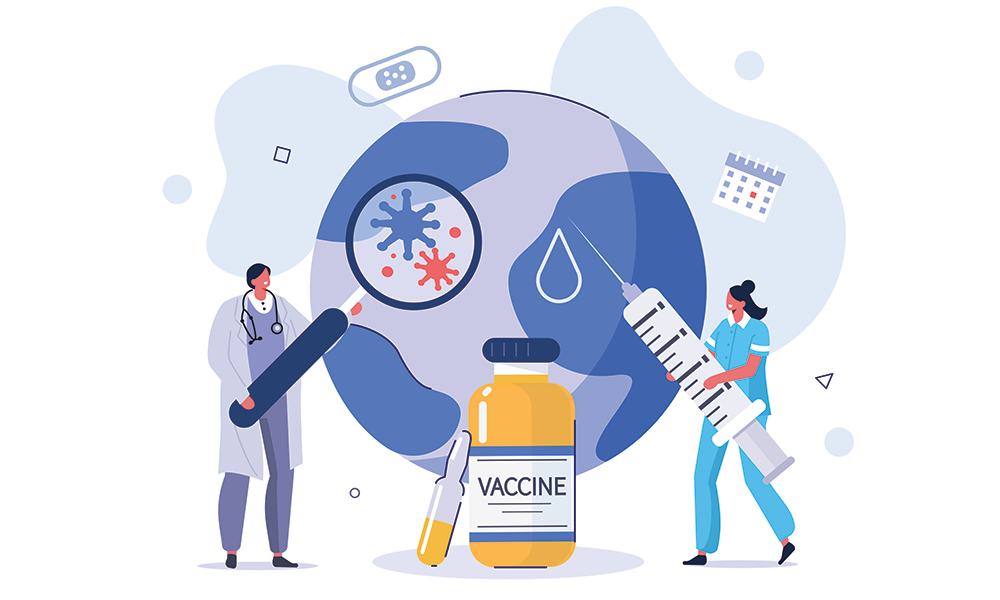Introduction:
Vaccination is one of the most effective public health interventions in modern medicine. Vaccines work by preparing the immune system to recognize and combat pathogens, protecting individuals and communities from serious diseases. Despite the proven benefits, vaccine hesitancy remains a significant challenge worldwide. Understanding the importance of vaccination can help promote public awareness, encourage informed decision-making, and enhance community immunity.
Key Points:
- Prevention of Disease:
- Vaccines are essential for preventing infectious diseases such as measles, polio, influenza, and hepatitis. By stimulating the immune response, they help individuals build immunity without experiencing the disease itself.
- The eradication of smallpox and the significant reduction in diseases like polio and diphtheria are direct results of widespread vaccination efforts.
- Herd Immunity:
- Vaccination not only protects individuals but also contributes to herd immunity, which occurs when a significant portion of the population becomes immune to a disease, making it difficult for the pathogen to spread.
- Herd immunity is crucial for protecting those who cannot be vaccinated, such as infants, elderly individuals, and those with compromised immune systems.
- Economic Benefits:
- Vaccination programs save healthcare costs by reducing the incidence of diseases and the associated medical expenses for treatment and hospitalization.
- Healthy populations contribute to economic productivity, as fewer sick days lead to improved workforce participation and economic stability.
- Global Health Security:
- Vaccination is a key component in global health initiatives aimed at preventing pandemics and outbreaks of infectious diseases. Vaccines can contain and control outbreaks, reducing the risk of global health crises.
- Initiatives like the Global Vaccine Action Plan aim to ensure equitable access to vaccines for all, promoting global health security and stability.
- Addressing Vaccine Hesitancy:
- Misinformation and fear can lead to vaccine hesitancy, jeopardizing public health. Educating communities about the safety and effectiveness of vaccines is crucial to counteract these concerns.
- Engaging healthcare professionals in discussions with patients, addressing misconceptions, and providing clear, evidence-based information can help build trust and encourage vaccination.
- Continued Research and Development:
- Ongoing research is essential to develop new vaccines and improve existing ones. Innovations in vaccine technology, such as mRNA vaccines, have shown promise in providing rapid responses to emerging infectious diseases.
- Public investment in vaccine research is vital for preparing for future health challenges and ensuring that vaccines remain safe and effective.
Conclusion:
Vaccination plays a vital role in safeguarding public health by preventing the spread of infectious diseases and protecting vulnerable populations. It not only contributes to individual immunity but also fosters community resilience through herd immunity. As we face new health challenges, understanding the importance of vaccines and addressing vaccine hesitancy becomes imperative. By promoting education and awareness, we can build trust in vaccination programs, ensuring healthier communities for future generations. Investing in vaccination initiatives is essential for a sustainable and secure public health landscape, ultimately leading to a brighter, healthier future for all.
Sources (Books and Articles):
- “Vaccines: A Biography” by Andrew W. Artenstein
- “The Vaccine Book: Making the Right Decision for Your Child” by Robert W. Sears
- Article: “The Importance of Vaccination: An Overview” by K. A. M. Paltiel and M. Zheng in American Journal of Public Health
- Article: “Addressing Vaccine Hesitancy: A Guide for Health Professionals” by K. M. Stokley et al. in Public Health Reports

